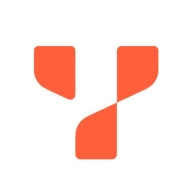

MongoDB Atlas and Yugabyte Platform address cloud database needs. MongoDB Atlas appears to have an advantage in ease of use and seamless scalability, whereas Yugabyte Platform offers robust compatibility and performance for distributed SQL workloads.
Features: MongoDB Atlas includes automated scaling, high availability, and a comprehensive ecosystem of third-party integrations. Yugabyte Platform provides strong SQL support, distributed cloud-native architecture, and advanced data handling capabilities. MongoDB Atlas is preferred for tools integration, while Yugabyte Platform is notable for distributed SQL handling.
Ease of Deployment and Customer Service: MongoDB Atlas simplifies deployment with a managed service model, enabling quick setup and cloud integration and focuses on minimizing operational overhead. Yugabyte Platform offers flexible deployment across cloud and on-premises, prioritizing control over the distributed database setup, involving more initial configuration but extensive architectural customization.
Pricing and ROI: MongoDB Atlas generally offers a straightforward pricing model aligned with cloud usage, potentially leading to lower initial costs and faster time-to-value for cloud-native applications. Yugabyte Platform might involve higher setup costs due to its scalable architecture but can deliver strong ROI through efficient distributed SQL capabilities over time. MongoDB Atlas is often more cost-effective for simpler use cases, while Yugabyte Platform suits complex, geographically distributed applications requiring high availability and performance.
| Product | Market Share (%) |
|---|---|
| MongoDB Atlas | 14.0% |
| Yugabyte Platform | 2.6% |
| Other | 83.4% |

| Company Size | Count |
|---|---|
| Small Business | 22 |
| Midsize Enterprise | 10 |
| Large Enterprise | 20 |
MongoDB Atlas stands out with its schemaless architecture, scalability, and user-friendly design. It simplifies data management with automatic scaling and seamless integration, providing dynamic solutions for diverse industries.
MongoDB Atlas offers a cloud-based platform valued for its seamless integration capabilities and high-performance data visualization. It features advanced security options such as encryption and role-based access control alongside flexible data storage and efficient indexing. Users benefit from its robust API support and the ability to manage the platform without an extensive setup process. Feedback suggests improvements are needed in usability, query performance, security options, and third-party tool compatibility. While pricing and support services could be more economical, there is a demand for enhanced real-time monitoring and comprehensive dashboards, as well as advanced containerization and scalability options supporting complex database structures.
What are the key features of MongoDB Atlas?
What benefits should you consider in a solution like MongoDB Atlas?
In healthcare and finance, MongoDB Atlas manages payment transactions and facilitates real-time analytics, powering SaaS solutions and storing large volumes of user data. It enhances scalability, performance, and security for cloud hosting, IoT integrations, and Node.js environments, widely favored for its flexibility and capability to support microservices.
For enterprises that want to use YugabyteDB in cloud-native environments at scale, Yugabyte Platform is an offering that delivers a streamlined operational experience, as well as comprehensive support and services.
Yugabyte Platform gives you the simplicity and support to deliver a private database-as-a-service (DBaaS) at scale. Use Yugabyte Platform to deploy YugabyteDB across any cloud anywhere in the world with a few clicks, simplify day 2 operations through automation, and get the services needed to realize business outcomes with the database.
We monitor all Database as a Service (DBaaS) reviews to prevent fraudulent reviews and keep review quality high. We do not post reviews by company employees or direct competitors. We validate each review for authenticity via cross-reference with LinkedIn, and personal follow-up with the reviewer when necessary.